2003 by the Board of Trustees of the University of Illinois
All rights reserved
Manufactured in the United States of America
c 5 4 3 2 1

This book is printed on acid-free paper.
Library of Congress Cataloging-in-Publication Data
Malaby, Thomas M., 1967
Gambling life : dealing in contingency in a Greek city / Thomas M. Malaby.
p. cm.
Includes bibliographical references and index.
ISBN 0-252-02828-7 (cloth : alk. paper)
1. GamblingGreeceChania. 2. Social interactionGreeceChania. 3. Chania (Greece)Social life and customs. I. Title.
GN454.6.M35 2003
306.42dc21 2002014271
For Cristina and Julian[They] were apt to pay attention to signs and portents other men had no inkling of. For them the web of cause and effect was invisible and simultaneously everywhere, which was why a man could sink his net with salmon one night and catch only kelp the next. Tides, currents, and winds were one thing, the force of luck another.
David Guterson, Snow Falling on Cedars
The plate of the hunter, the gambler, and the fisherman is nine times empty and one time full.
Cretan proverb
Preface
This book is a product of an ongoing attempt to answer a question that has repeatedly caught my attention since I began studying anthropology: How do people come to understand the distribution of fortunes in the world (Weber 1946, 275)? Webers own pursuit of an answer to this question has left a lasting legacy in social science, but within this legacy this question has too often been reduced to that of theodicy, that is, the moral paradox posed by the existence of suffering under a religious framework that presupposes a benevolent and omnipotent god. I assert, however, that there is a deeper sociological aspect of the question contained in Webers project, one that is prior to its particular realization in the issue of theodicy. This aspect is that of indeterminacy itself as a feature of human experience. Framed in this way, the issue of indeterminacy generates two kinds of sociological investigations, what might be called objectivist and interpretive, and my goals in this book reflect this dual agenda. One on hand, I seek to sketch out a new language for identifying and discussing indeterminacy from an analytical point of view. In this sense, this project is in some sense a constructive onean attempt to escape the straitjacket of risk and fate that academics have inherited and that is desperately unexamined and antiquated. On the other, I seek to draw attention to how unexpected outcomes are interpreted and accounted for by individuals, groups, and institutions to establish or maintain moral and political legitimacy. These two objectives at times lie uneasily alongside one another, but I believe this juxtaposition is a productive one. To focus on meaning and power alone would be as reductive as it would be solely to explore how we can chart indeterminacy as a universal aspect of human experience.
Choosing to study the social processes surrounding gambling events to reach these goals is in one sense a natural move given the longstanding reliance on metaphors of game playing in theories of social action. But in doing so I am also working through, as it happens, my own lifelong fascination with games, which began in a household that relied on them as a forum for sociality and grievance. In this sense, the city of Chania in Greece was almost immediately a familiar territory because of the similar prominence of games in everyday Greek life. However, to pursue the questions raised by the issue of indeterminacy demands that I incorporate this examination of the domain of gambling into other arenas of experience where chance also resides, and therefore this book, though organized by its focus on gambling, is as much an attempt to gain insight into the uncertain realms of tourist entrepreneurship, courtship and kinship, criminality, and mortality as it is an ethnography of gambling practice. Throughout this book, then, I am pursuing an understanding of the meaningful connections that Greeks in Chania make across these domains but also seeking to identify the various sources of unpredictability that predominate across and among them.
In pursuing and completing this project I have relied on the good will and good advice of many people and the support of generous institutions. I would like first to thank the gamblers and other residents of Chania who welcomed my intrusive questions and patiently taught me not simply the rules of the many games they played but also how to play and understand them. Although I have used pseudonyms throughout this book to protect their privacy, I would like to note my appreciation to several here using their real names. In particular I thank and remember Vangelis Vranas, a good friend who did not live to see this work completed. Other Chaniots who deserve special mention for their assistance and friendship include Elpidha Katsantoni and Rudi Riegler, Sophia Liggouri, Lori Little, Noriko Komine, and Khristoforos Sklavonitis. In addition I wish to extend my gratitude to the staff and faculty of the Ithaca Programat the time of my research situated in Chaniaincluding Nikos and Ann Yermanakos and Joan Neumann for their warm hospitality. I am deeply indebted to Noufris Papatzanakis and Lotte Neumann for their guidance, friendship, and hospitality; many of the ideas in this work had their genesis in long and engaging conversations in our favorite places in Chania.
The research on which this work is based was most intensively carried out in two visits over a period of eighteen months from September 1994 through February 1996. It was supported by a Fulbright-Hays Fellowship for Doctoral Dissertation Research Abroad and a Krupp Foundation Dissertation Research Fellowship through the Minda de Gunzberg Center for European Studies at Harvard University. Chip Ammerman and George Dariotis of the Fulbright office in Athens provided invaluable assistance and hospitality. Subsequent visits of shorter duration, one supported by a Faculty Travel Award from the University of Wisconsin at Milwaukee, have supplemented these findings. Time to complete final preparation of the manuscript was generously made available by the University of Wisconsin at Milwaukee, and I thank in particular J. Patrick Gray, chair of the Department of Anthropology, and Eleanor Miller, associate dean for the social sciences.
Fellow students in the anthropology department of Harvard University provided intellectual stimulation and camaraderie as they patiently read and discussed much of this work, especially Bartholomew Ryan, Josh Breslau, Levent Soysal, Andreas Glaeser, Komatra Chuengsatiansup, Don Seeman, Ann Frechette, Matthew Kohrman, Melissa Caldwell, and Brian Palmer. I am enormously grateful for all of their input. Many other friends, colleagues, and teachers have graciously read and commented on parts of this work, including Daphne Berdahl, David Sutton, Fredrik Barth, Vangelis Calotychos, Terry Roopnaraine, Andr Levy, and Christina vonMayrhauser. Arthur Kleinman and Stanley Tambiah provided invaluable guidance through their careful attention to this project and their insightful comments. Peter Klibanoff and Andrew Guzman have been treasured resources for economic treatments of uncertaintyabove and beyond the call of duty for such close friends. Ingrid Jordt and Kalman Applbaum at the University of Wisconsin at Milwaukee have provided both sustenance and substantive insight in many tea-laden conversations as this book reached its final stages. Paul Brodwin, Cheryl Ajirotutu, and Bill Washabaugh have also helped make UWM a welcoming and exciting place for me to carry out this work. Of course, whatever shortcomings remain in this text are wholly my own.


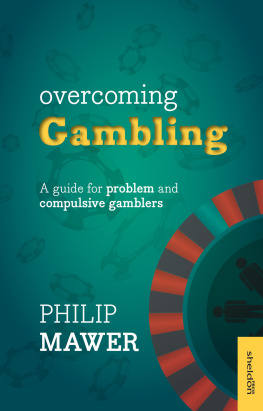
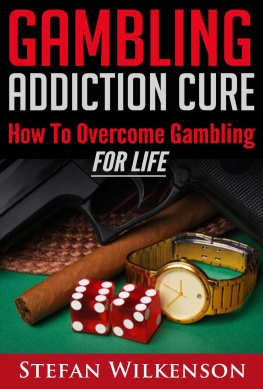
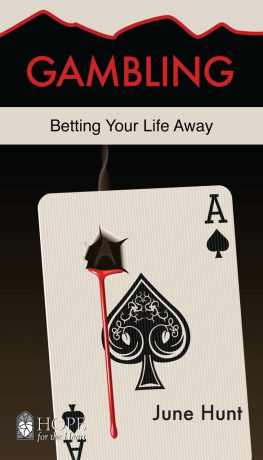
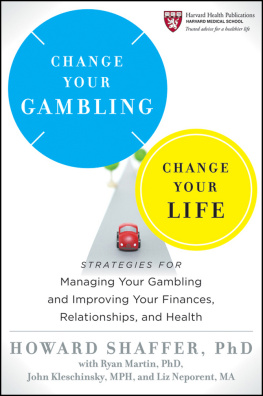
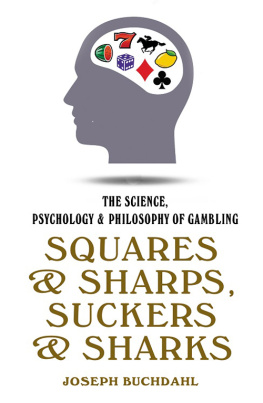
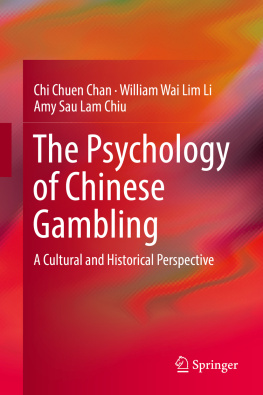
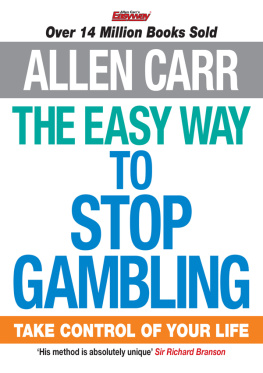
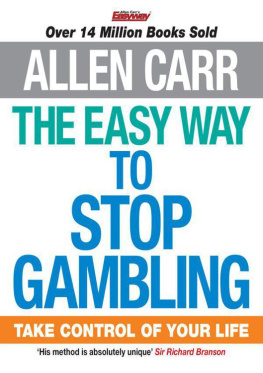

 This book is printed on acid-free paper.
This book is printed on acid-free paper.